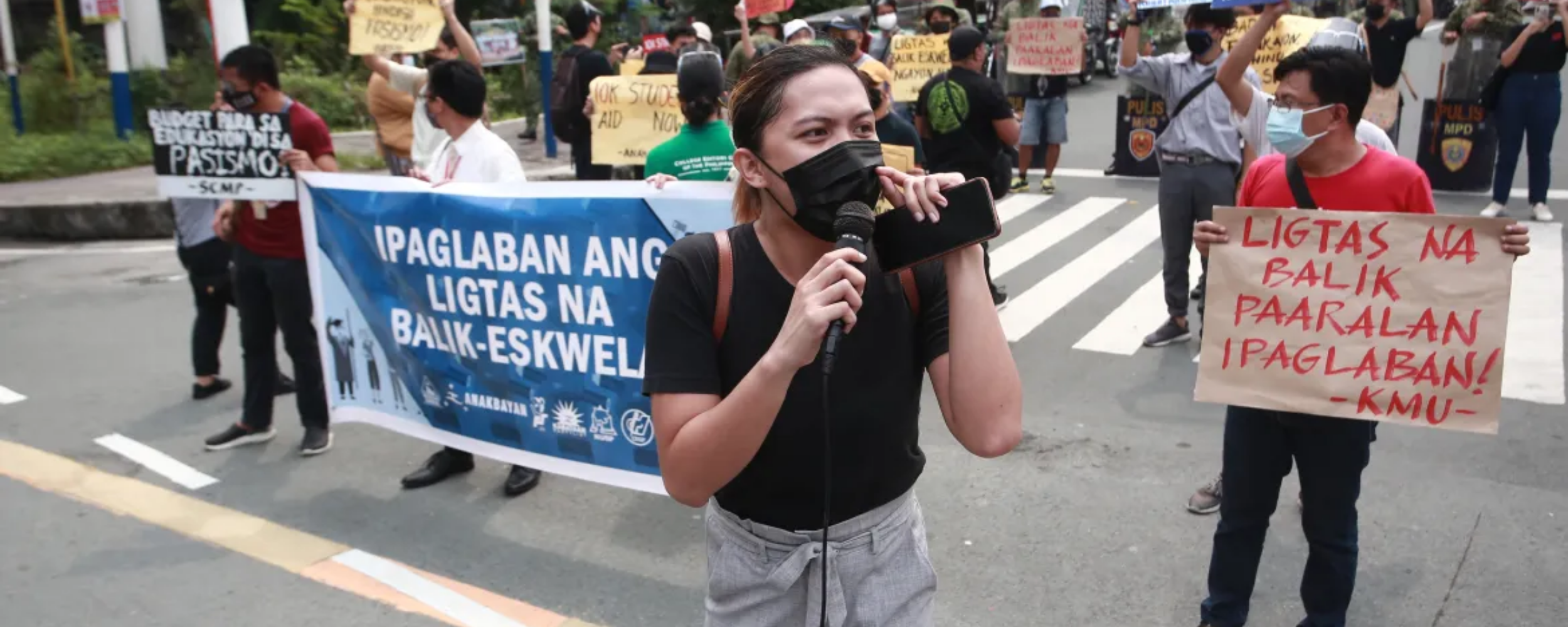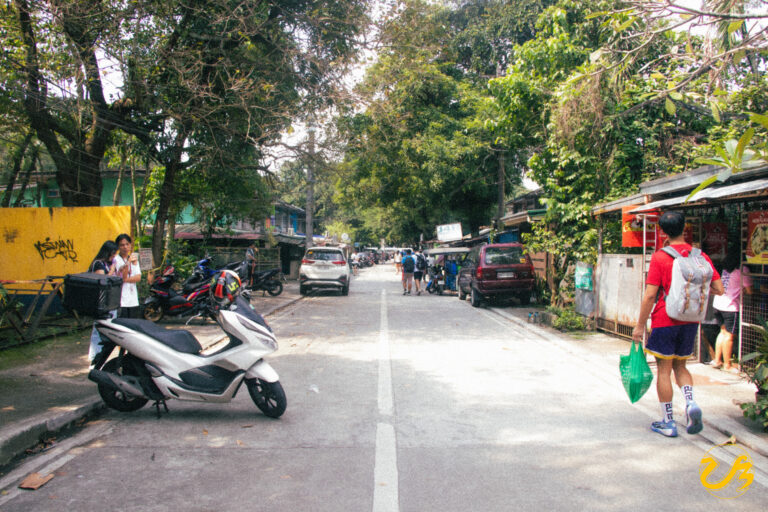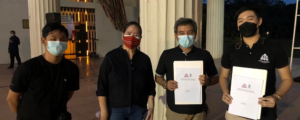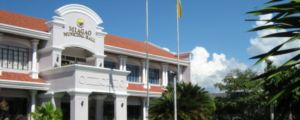
The Philippines is officially the last country to open the schools, as the Inter-Agency Task Force (IATF) finally approved the beginning of limited face-to-face classes in the first quarter of 2022.
However, despite initial excitement, some students worried about the distance of their universities from their homes, unsure about whether they would have to move away from their families in the province and look for accommodation on campus. Meanwhile, others worried about how they could help sustain their families financially due to the rising prices of basic necessities. In the College of Social Sciences and Philosophy Student Council (CSSP SC) College Student Assembly, it was mentioned that 91 majors are working students, and 68 said that they will continue working during F2F classes.
“Maaaring mabigla at hindi kaagad maplano ng mga estudyante o pamilya nila ang literal na pagbabalik sa campus.” said Nick Aguilar, the CSSP FST Chairperson, regarding the possible return to limited F2F classes.
“Ang bunga naman nito ay isang F2F kung saan marami ang hindi makakadalo sapagkat sila ay nasa probinsya, kulang ang pera na pang pamasahe, natatakot sa pagkakataong mahawa ng COVID-19, at hindi pa handa ang kalusugang pangkaisipan,” he added.
The education sector is one of the most affected by the health crisis, and this has been proven among its stakeholders who have struggled to keep up with new ways of learning despite the lack of any proper support from the government. For the academic year 2021-2022, The Department of Education (DepEd) and Commission on Higher Education (CHED) insisted on the continuation of classes despite the lack of mass testing, inaccessibility to affordable and quality education, and economic recession, resulting in financial hardships for the families of students nationwide.
Although the headline inflation has eased in the past few months, the financial situation of many families in the student body was worsened by the rising prices of basic necessities such as rent, water, and electricity, which have become increasingly more difficult to afford.
Until now, stakeholders remain critical of the Duterte administration’s announcements and policies. According to the guidelines released by the two agencies, it seems like the schools and students still bear the brunt of responsibility towards preparing for face-to-face classes.
The requirements given by CHED and the IATF are the following:
- High vaccination rates among students, faculty, and staff
- Approval from the Local Government Unit
- Retrofitted facilities
According to Teacher Iza Reyes, the high school coordinator and Filipino teacher of the Raya School, “Kita na mas binigyang-konsiderasyon ang health protocols [na tama naman] pero kulang sa konteksto ng edukasyon.”
She hopes that, alongside emphasizing the significance of health protocols, they must take into account its feasibility alongside the current curriculum, survey the needs of students and teachers, and check if schools have enough resources to start F2F classes.
As we inch closer to the reopening of classes, the sole representative of the nation’s youth, the Kabataan Partylist (KPL), in collaboration with National Union of Students of the Philippines (NUSP), crafted a roadmap towards the safe return of classes.
This three-part roadmap is composed of the demands of the stakeholders from schools across the country and how educational institutions will be able to meet these requirements in a more inclusive and student-centric way.
A COMMUNITY-CENTERED RESPONSE TO THE PANDEMIC
The Ligtas Balik Eskwela Campaign clearly prioritized the health and well-being of students. This is reflected in the first part of KPL’s roadmap which centers around creating health programs alongside local government units (LGUs), such as providing testing sites and vaccination drives.
For instance, the #BakunahanSaDiliman program at the University of the Philippines provided an opportunity for the school’s stakeholders to get vaccinated on school grounds. Slots also opened for 200 students to avail of vaccinations. More schools, such as Miriam College, have been following suit with programs such as these.
In a community-centered response, Aguilar highlights that educational institutions’ proposed guidelines regarding F2F classes must involve the participation of the student body, directly consulting them for the policies that the institution has decided to implement.
“Matutulungan ng paaralan ang masang estudyante sa pamamagitan ng patuloy na konsultasyon, pagiging bukas sa mga hinaing ng mga estudyante, at ang pagpapatupad ng mga patakarang kayang maabot at matulungan ang nakararami,” Aguilar explained.
The recent approval of the limited face-to-face guidelines from the UP administration has proven how the students, who are the main constituents of the university, are excluded from the creation of guidelines that they will be made to follow during face-to-face classes. UP Diliman University Student Council (USC) chairperson Jonas Abadilla said that not all the 338 students who were permitted to participate in these classes were properly consulted or received the FAQs supposedly given by the Office of the Vice Chancellor for Academic Affairs (OVCAA).
“Hindi basta-basta ang pagbabalik sa kampus o ang tawag ng iba na ‘new normal.’ Buhay ng mga tao ang nakataya dito, kung kaya’t kailangan klaro at handa ang roadmap ng mga pamantasan bago natin masabi na ito ay handa,” Aguilar added.
The De La Salle University’s student government was one of the first to release a proposed Education Recovery Plan per the needs and concerns of the student body last October. This includes the health and safety measures that the students need to go back to school, with proposed health screenings through the DLSU Health Check App, contact tracing using RFID-Equipped IDs, and facility disinfection after their every use.
Part of KPL’s framework also included allowing students from all levels to physically use school facilities such as libraries, laboratories, and computers. This has been done by the Rizal Library of the Ateneo de Manila University, which has allowed their students to borrow physical copies of books from the library.
THE STATE’S OBLIGATION TO THE EDUCATIONAL SECTOR
The government must play an active role in the process of allowing the safe return of students to classes.
In the framework done by UNICEF for the reopening of schools, it states that the government must provide “direct education funding to schools hit hardest by the crisis” and “identify response and recovery financing for immediate investments in school water, sanitation, and hygiene.” The allocation of adequate funds to the basic and higher education for the 2022 national budget is essential to the recovery of the education sector in the following year.
The government cannot leave the responsibility with the schools and their limited resources. They should not slash the budget of state universities and colleges which provided scholarship programs to many low-income students.
Although the DOH and CHED have made efforts to prioritize the health protocols in the trial run of face-to-face classes, they must also consider the resources of the students themselves. For the past few months, the youth has also been actively campaigning for the distribution of 10k pesos worth of aid to all students to cover their school supplies and needs during the transition to face-to-face classes.
“Sa panahon kung saan ang daming pagbabawas sa mga badyet ng iba’t ibang paaralan, kailangan panindigan ng gobyerno na prayoridad nito ang ating kaligtasan at makakamit nila ito sa pamamagitan ng pagbibigay ng sapat na badyet para sa mga paaralan.” said Aguilar, emphasizing theimportance of the allocation of funds to scholarship programs and sufficiently funding free education program.
The UNICEF framework also mentioned that there should be a continuous and timely payment for teachers and staff, and policies to protect at-risk personnel.
“Sana rin ay may hazard pay para sa mga guro at empleyado ng paaralan dahil hindi pa rin naman talaga ligtas ang bumalik [sa eskwela] at nanganganib pa ring magkasakit. Kung hindi man, sana may kasiguraduhan na matutulungan sila sa gastusin sakaling magkasakit.” Teacher Iza Reyes also mentioned, coinciding with the demands of teachers nationwide.
ENSURING SCHOOLS AS SAFE AND DEMOCRATIC SPACES
With the state forces’ overt presence in elementary schools during the pilot run of limited face-to-face classes, the state and educational authorities are mandated to ensure that schools remain as safe and democratic spaces. Police and military forces should be barred from entering schools and conducting meetings that pose a threat to the security of the students in school.
Schools must also guarantee the financial autonomy and independent operation of student councils, governments, publications, and organizations. The rising cases of censorship in universities and red-tagging of students in organizations should not be tolerated.
Ultimately, the safety and security of students also include their mental and emotional health. The COVID-19 pandemic drastically increased the number of committed suicides and incidents of self-harm in the Philippines last year.
DepEd has released a mental health helpline for students and teachers; however, this can only work if they also lessen the workloads and requirements of their constituents who are suffering now more than ever amid a health and economic crisis.
There are also existing free mental health services provided to students in various universities such as PsychServ in the University of the Philippines and the Bulatao Center in the Ateneo de Manila University. Although many who have availed of these services found them beneficial, these services are still works-in-progress. Students have said it took a long time before they were able to schedule a session with these services due to the volume of people signing up.
Overall, the road to face-to-face classes must be a holistic one—prioritizing a safe and secure educational environment, an inclusive curriculum, and sufficient resources for all constituents going back to school.
In the words of Teacher Iza Reyes, “Hindi balik-eskwela kung hindi ligtas na balik-eskwela.”
Featured image courtesy of maharlika.tv








Wonderful work! This is the type of information that should be shared around the net. Shame on the search engines for not positioning this post higher! Come on over and visit my web site . Thanks =)